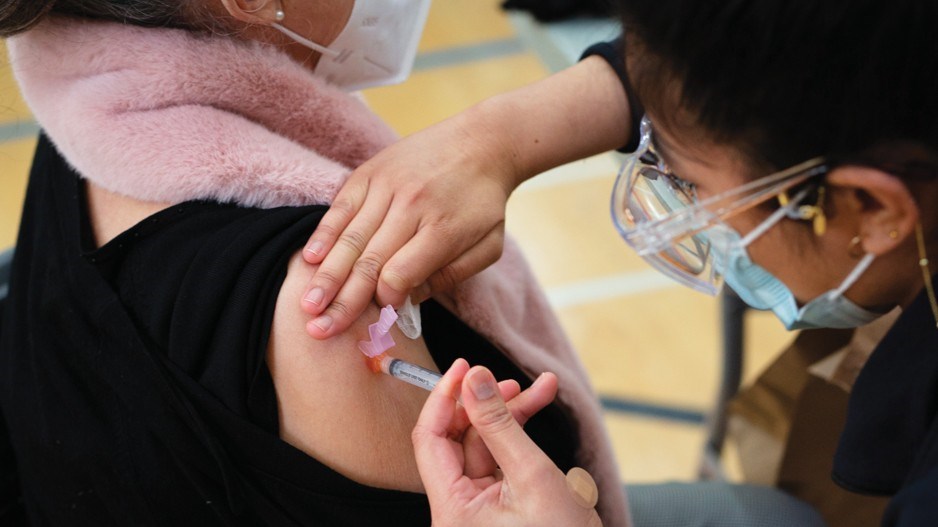A B.C. woman is in the midst of recovering following a blood clot linked to the administration of a COVID-19 vaccine.
B.C. provincial health officer Dr. Bonnie Henry reported the case — a first for the province — during a Thursday media briefing.
“This is something we know is rare but is associated with the AstraZeneca vaccine that we have been receiving here in Canada,” she said.
“We can, however, be confident for those who have received the AstraZeneca vaccine here in B.C. that it is an excellent vaccine. It is safe and it is effective.”
Henry said the likelihood of such a blood clot developing is one out of 100,000 doses, however, the number of cases reported compared with the number of doses administered indicates cases are much rarer than that.
Symptoms can manifest between day four and day 28 of receiving a dose.
The lone B.C. woman to develop a blood clot saw her symptoms manifest on either day five or day six of getting the vaccine, according to Henry.
She said British Columbians can call 8-1-1 if they feel unwell and are experiencing persistent severe headaches, shortness of breath, chest pain or severe abdominal pain, and swelling or redness in a limb.
“The reality is right now we have a lot of Pfizer vaccine,” Henry said, when asked about whether this case might spark vaccine hesitancy or vaccine shopping.
“We are not expecting a lot more of the AstraZeneca vaccine to come in, so in some ways it’s a moot point.”
The Pfizer Inc. (NYSE:PFE) vaccine has not been linked to rare cases of blood clots.
Meanwhile, provincial health officials are in the midst of determining how to incorporate vaccinations for children 12 and up into B.C.’s mass vaccination campaign after Health Canada on Wednesday approved the use of the Pfizer vaccine for that age group.
It’s the first time a COVID-19 vaccine has been given the nod in Canada for children under the age of 16.
Studies examined by Canadian regulators showed the Pfizer vaccine to be 100% effective at preventing COVID-19 in the young age group.
A total of 1,899,628 British Columbians — or 44% of the eligible population of 4.3 million — have received at least one dose of a vaccine, while 95,868 have received two doses.
Henry noted during Thursday’s briefing that the province will have surpassed two million doses administered by day’s end.
“We will be able to move up second doses, I believe, for most people starting very soon,” she said, referring to the significant ramp-up in the delivery of Pfizer and Moderna Inc. (NYSE:MRNA) vaccines. B.C. is due to accept more than four million doses from manufacturers by the end of June.
Penny Ballem, executive lead for B.C.’s immunization plan, said during a conference on Wednesday that she expects a significant acceleration of second doses to begin by the third week of June and that the current interval between first and second doses — 16 weeks — will be reduced.




